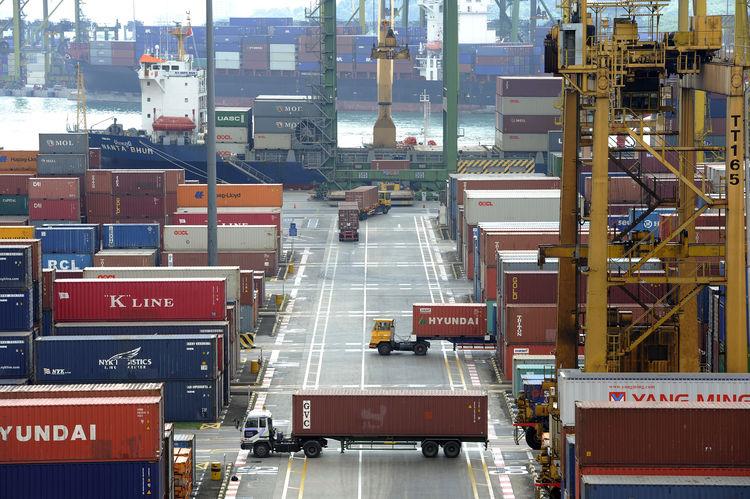- Exporters Seek Release of N350billion Accumulated Grant
In the last six months, non-oil exporters in the country have been mounting pressure on the federal government to release the accumulated Export Expansion Grant (EEG), from 2007 – 2016.
In a letter dated 10 April and signed by the Executive Secretary, Organised Private Sector Exporters Association (OPEXA), Mr. Jaiyeola Olanrewaju, and directed to President Muhammadu Buhari, the association pointed out that the federal government had earlier approved promissory notes (PN) programme in 2017, at its Federal Executive Council meeting and forwarded to the National Assembly for their approval in 2018. It was stated that National Assembly had also conveyed its approval for payment of N195 billion claims in January, 2019.
“We, the exporters have been waiting anxiously, since the approval from NASS for the PNs to be issued. It was only on 4th April 2019, almost 70 days after the approval from NASS that the DMO (Debt Management Office) called the exporters to brief us on the implementation of PN program,” the letter stated.
It went on to condemn the sudden move by the DMO to issue the PNs through a Reverse Auction Process, adding that the DMO has not been forthcoming with any further details about the mechanism of Reverse Auction Process.
Consequently, the association made a three-point demand on the issue. Firstly, was that the Reverse Auction Process (RAP) for issuance of Promissory Notes (PNs) should be reconsidered by the government. Secondly, that the government (including the Debt Management Office, DMO) should restrict themselves to issuing the PNs as the shortest term feasible for payment, while equal treatment should be meted to all beneficiaries of all categories of PN.
The third demand by OPSEA was that exporters should be issued PNs with shortest tenure (spread evenly over a maximum period of three years) bearing in mind that payment has been delayed for a period of three to 12 years for member’s claims.
The association declared that members were becoming unsettled in their businesses more than ever and unable to carry out their vital roles.
The association said government’s inaction was causing challenges to their members.
One of such major challenges it stated, was the accumulating interests on loans which was said to be making their investment and pricing decisions in their businesses very difficult. “We have taken up debts to service the receivables and these debts are incurring further interests with the continuing delay in the payment of EEG claims,” the letter added.
Though it is believed that the current government under the leadership of President Mohamadu Buhari, has shown clear intention to take the country out of the perennial dependence on oil revenue by getting other sectors up and working, analysts have insisted that the ongoing dispute could be a stumbling block if not nip in the bud.
According to OPSEA, the inability of government to meet up with the promissory notes for non-oil exporters for dues owed them for over nine years may undermine the successes recorded so far by the policy.
In a letter to the president appealing for his intervention on the matter, OPSEA recounted that before now, the previous administration commenced the issuance of EEG to genuine exporters but the grant was later suspended in 2007 due to duplicitous claims and counter-claims by stakeholders over who and who should indeed benefit from the package.
Meanwhile, initially pressure was on the National Assembly to do its work and give its legislative nod for the issuance of the federal government’s N350 billion Promissory Notes to exporters in continuation of the EEG. But the pressure is now back on the executive to complete what it started by ensuring that the PNs are settled without further delays.
Reliably sources have it that the Federal Executive Council had sent three issues for the formal approval by the National Assembly earlier in the year. The three executive resolutions bothered on the EEG claims, payment of construction contractors and pensions.
While the lawmakers were said to have since rectified the two items, it was however unclear then if legislative action on the EEG claims was made.

 Billionaire Watch2 weeks ago
Billionaire Watch2 weeks ago
 Startups4 weeks ago
Startups4 weeks ago
 News4 weeks ago
News4 weeks ago
 News4 weeks ago
News4 weeks ago
 Bitcoin4 weeks ago
Bitcoin4 weeks ago
 Naira4 weeks ago
Naira4 weeks ago
 Forex3 weeks ago
Forex3 weeks ago
 Treasury Bills4 weeks ago
Treasury Bills4 weeks ago























